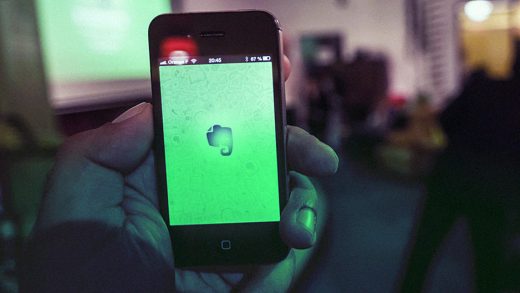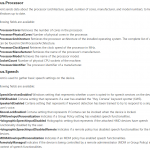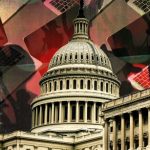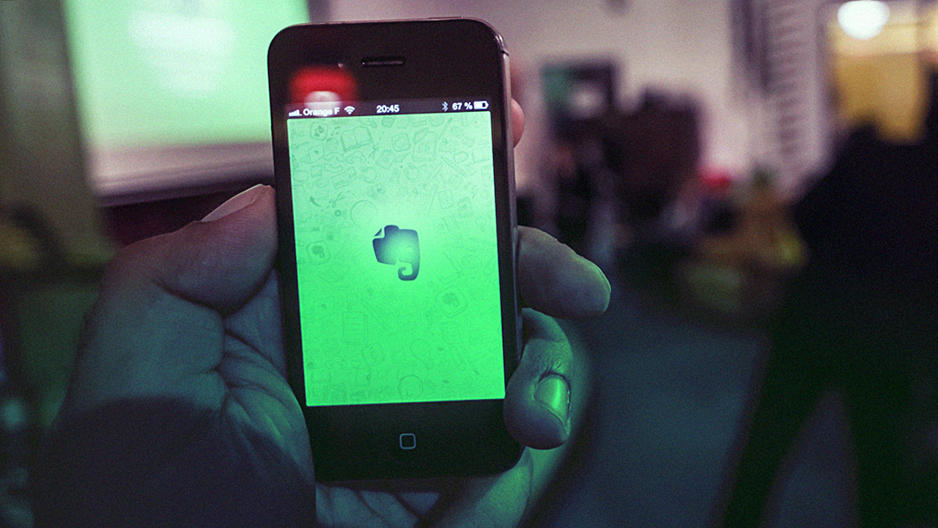Evernote CEO Explains Why He Reversed Its New Privacy Policy: “We Screwed Up”
Evernote is reversing its decision to implement a controversial privacy policy change on January 23rd because it “screwed up” its explanation of the change, says CEO Chris O’Neill. Originally announced Wednesday, the policy appeared to imply that Evernote employees would have unfettered access to user’s private notes on the service, something the company claims was never actually the case.
“We screwed up, and I want to be really clear about that,” Evernote CEO Chris O’Neill told Fast Company seconds after getting on the phone for an interview late Thursday afternoon. “We let our users down, and we let our company down.”
O’Neill says that the company screwed up when it came to the way it communicated and explained the new policy, and that the headlines being written about the change were “just not true.”
“Human beings don’t read notes without people’s permission. Full stop. We just don’t do that,” says O’Neill, noting that there’s an exception for court-mandated requests. “Where we were ham-fisted in communicating is this notion of taking advantage of machine learning and other technologies, which frankly are commonplace anywhere in the valley or anywhere you look in any tech company today.”
He says that what was interpreted as a policy that would give Evernote employees the opportunity to read users’ notes, was actually a reference to using user data, with their permission, to help improve new features.
For instance, a user might opt into a new feature that reads a document and creates an action-item list based on that document. Out of the gate, your document would never be read by a human; however, if you ran into issues with the feature and asked for help, then you could grant access to that specific note to a support employee to help you troubleshoot the issue.

“There are some things we don’t know that relates to what the privacy policy will look like,” O’Neill says. “We have to figure some stuff out, but I can assure you it’s going to be more in the opt-in side of the equation.”
That distinction, opting in to sharing your notes rather than being forced to opt out of sharing them with Evernote employees, fueled much of the outrage about the new policy from users, many of whom thought Evernote might be trying to “pull a fast one” over on them.
“We could not have communicated more poorly, if what we were trying to do was nefarious,” says Andrew Malcolm, SVP of Marketing for the company. “What we were trying to do is say that we’re always looking for ways to make people more productive, and to be as transparent about how we do that as possible.”
He says that for now, the company isn’t going to implement the policies it announced were going into effect early next year.
“We’re going to take a step back, and not just think about machine learning and what that means for us but also to think about how we can express our approach to privacy in the most clear way possible so users can not only have confidence that we’re as committed to privacy as we’ve ever been, but also understand how we do that.”
The company may also may introduce new security features soon. When I asked about enhanced encryption, something many suggested as a solution for keeping notes truly private during (January 02, 2017)’s uproar, O’Neill said new features were on the way.
“One of the things that we’re doing is migrating to a public cloud to dramatically increase the robustness and frankly the variety and depth of our security features and encryptions,” he says. While he declined to say specifically what any of those improvements would be, he said that the company is prioritizing new features based on the requests and concerns that have been submitted by users.
“It’s fair to say that people will see a significant amount of features related to security that really address fundamental needs that people have expressed for a long time,” O’Neill says.
For now, however, Evernote remains committed to privacy and assures me (and you) that’s it’s not looking at any of your notes.
Fast Company , Read Full Story
(16)














